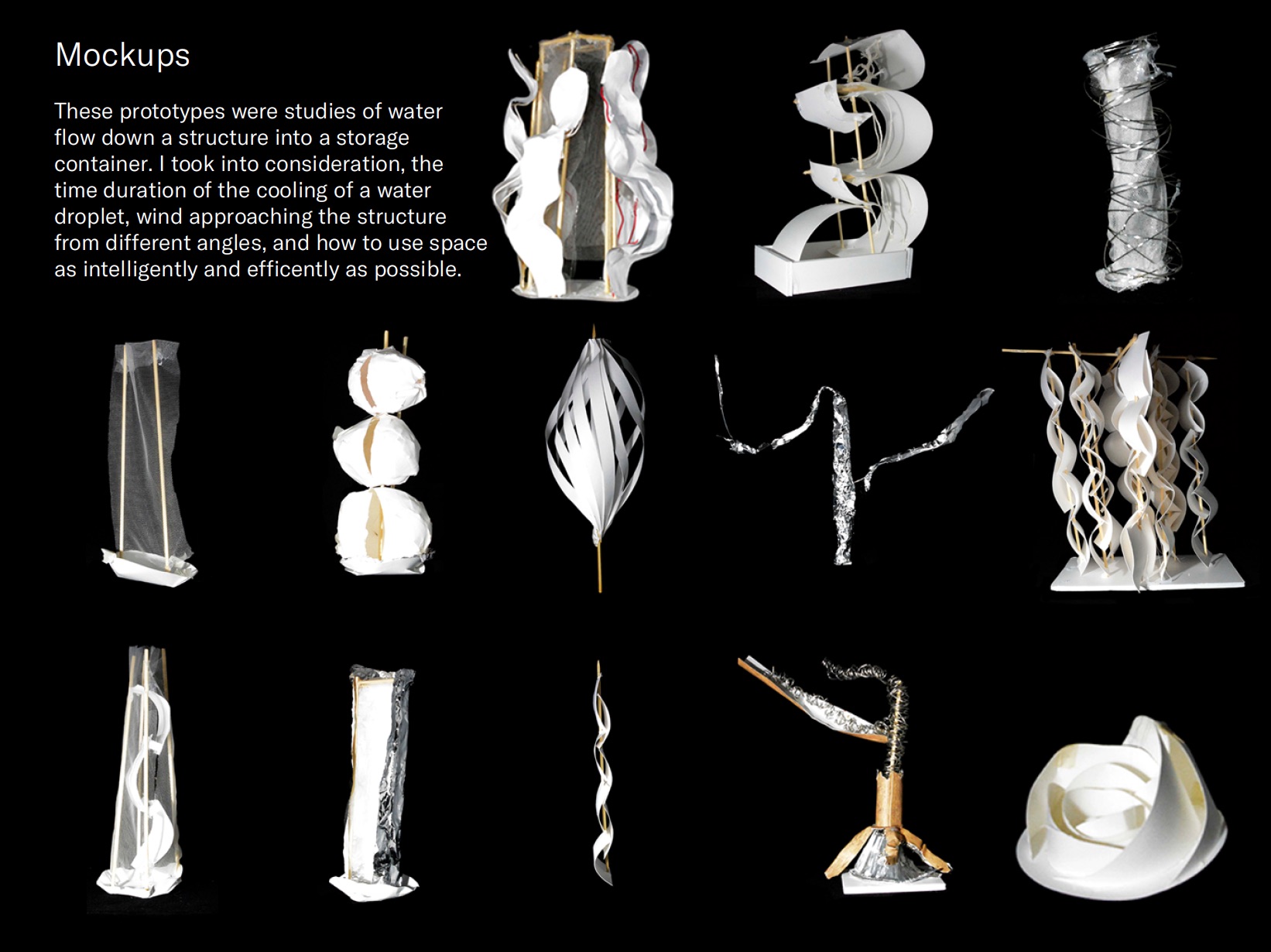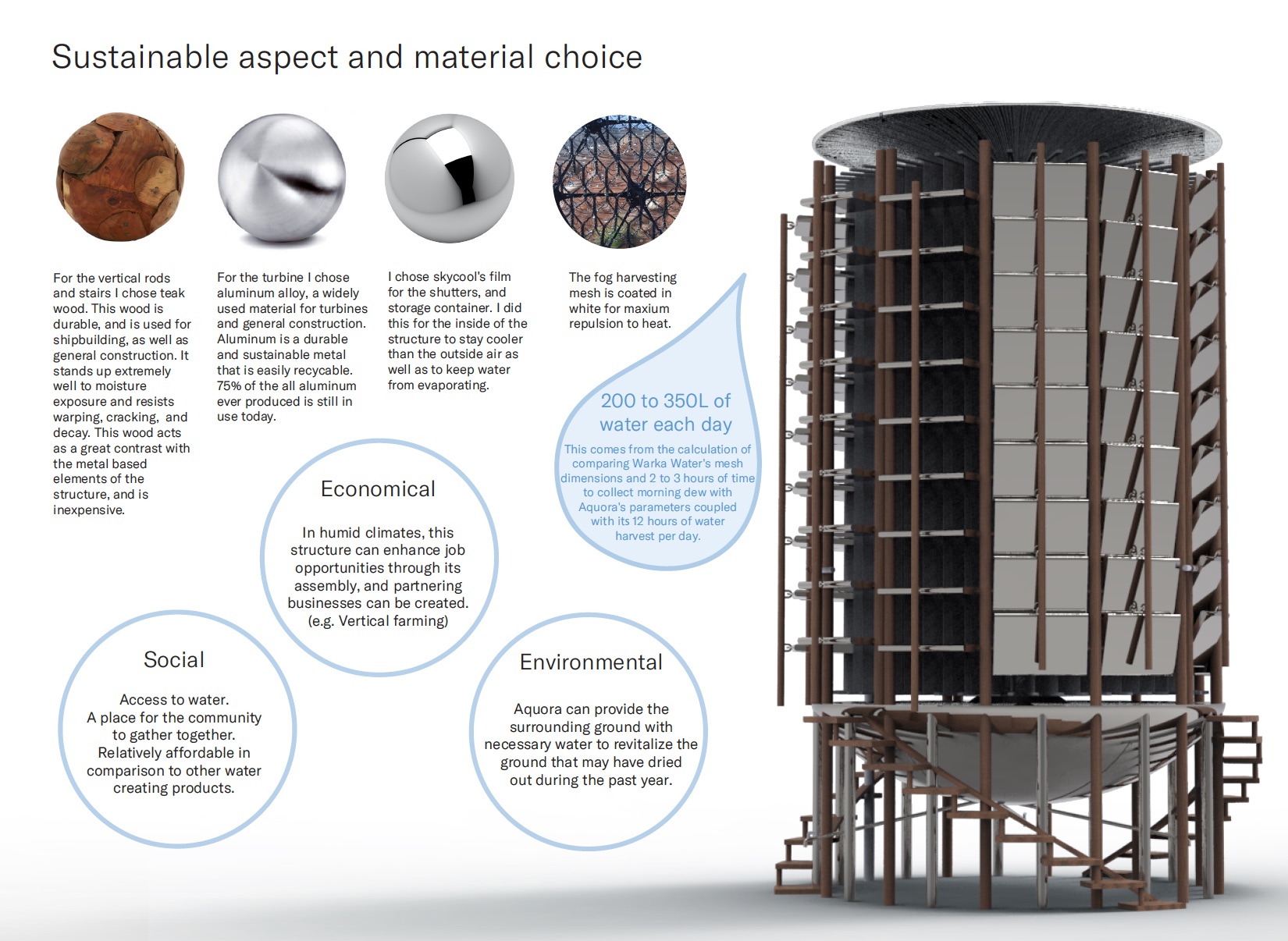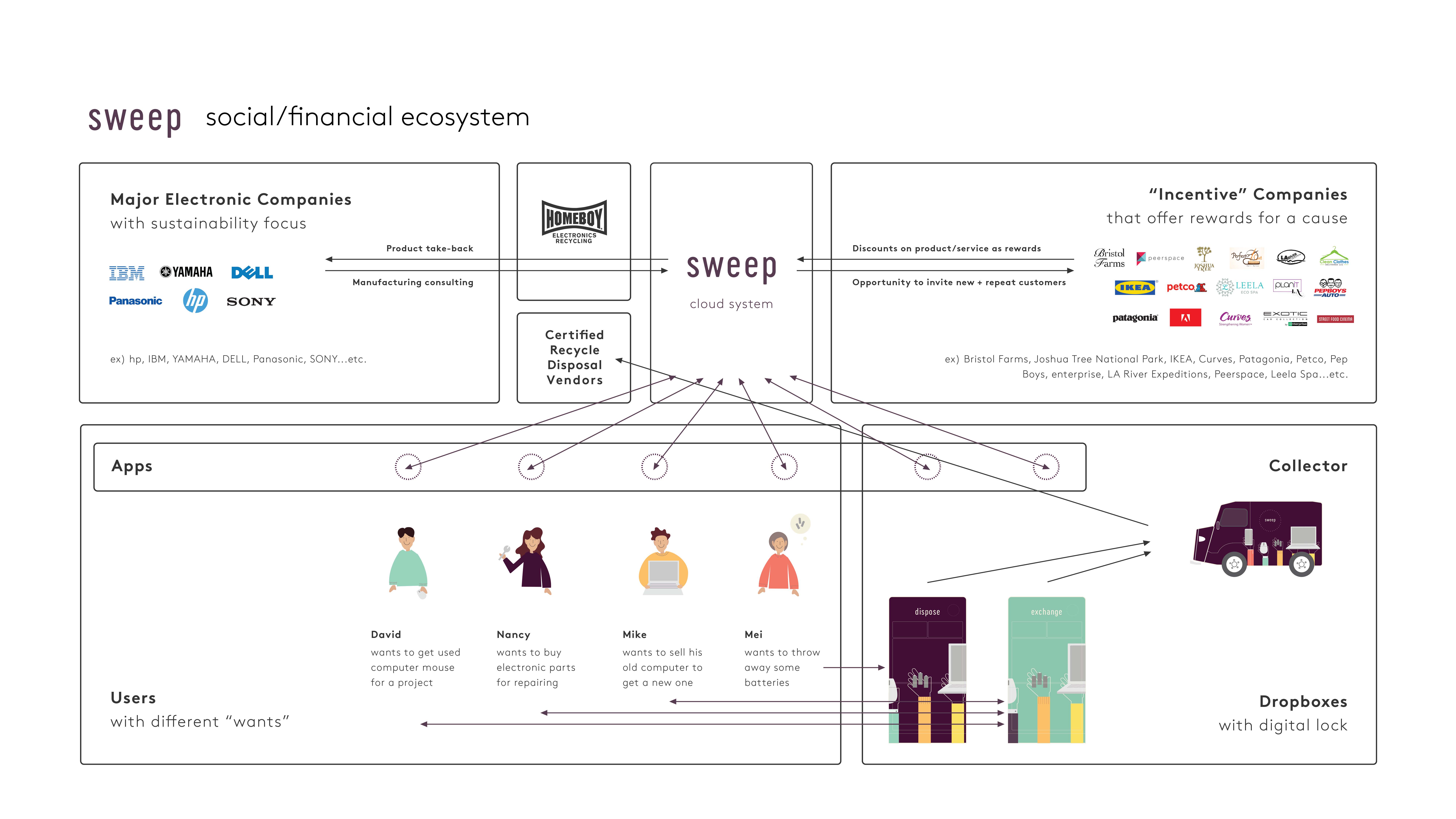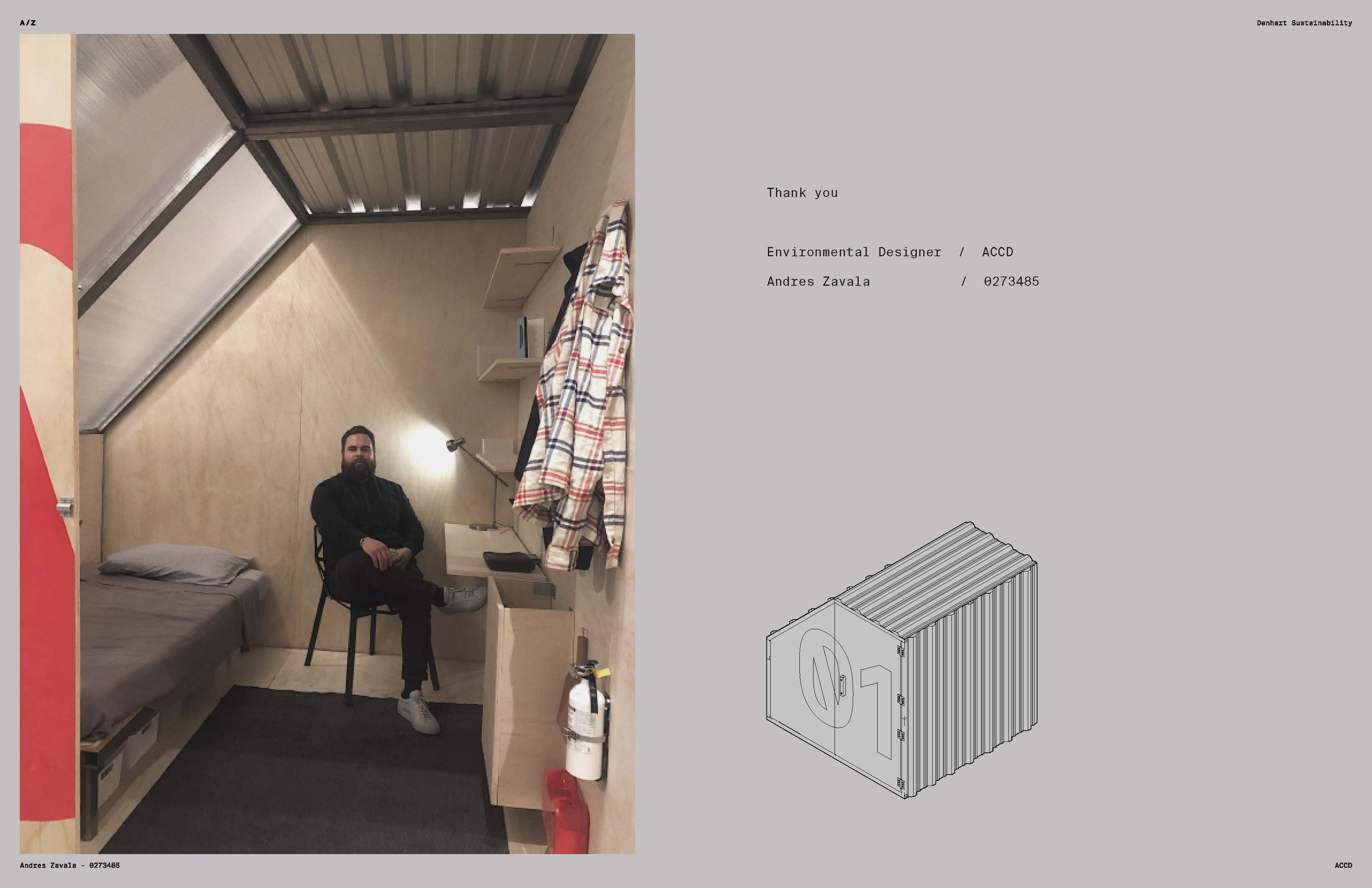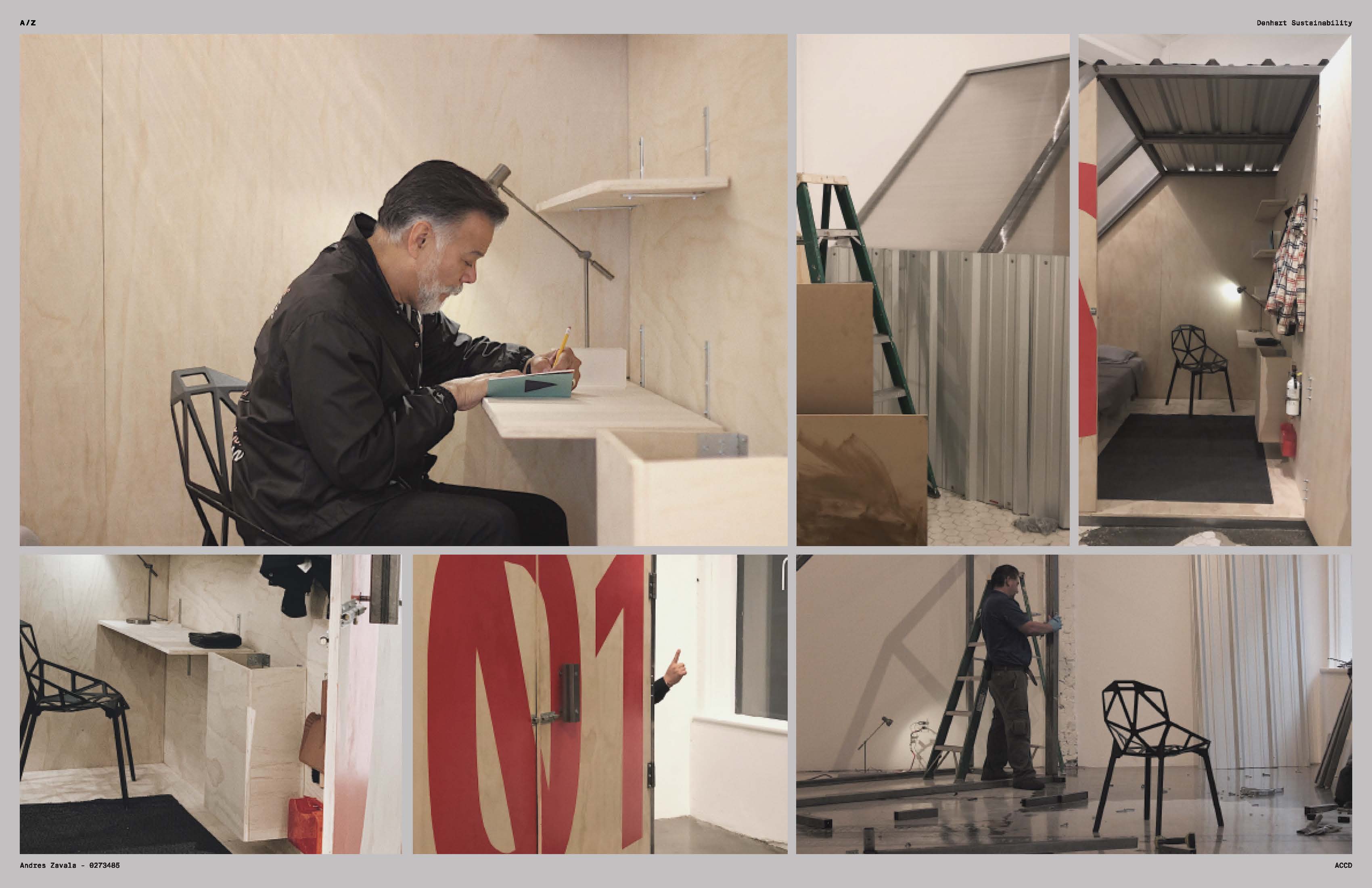A system for harvesting water, an e-waste solution and an affordable temporary structure to combat homelessness—these student projects constitute the winning lineup of the 2018-2019 Denhart Sustainability Scholarship Prize competition.
The awards recognize outstanding projects that integrate sustainability with superior design outcomes, and have the potential to influence art and design education and advance professional practice. In addition to recognition, the student designers are rewarded with significant scholarship funds.
Created through a generous gift from Gun Denhart and her son, Product Design alumnus Christian, the annual prizes support students who are making environmental and social criteria a priority of their work. This year’s applications were judged by a team comprised of Professor and Director of Sustainability Initiatives Heidrun Mumper-Drumm, Christian Denhart and this year’s guest judge, alumna Jessie Kawata, principal design activation director for Microsoft.
Offering kudos, Provost Karen Hofmann expressed “congratulations to all the students and faculty involved in these projects!! It is impressive and inspiring to see how much the Denhart family has committed to supporting this initiative. Many thanks to Heidrun for spearheading this valuable scholarship over the years.”
- The $15,000 first prize was awarded to Marie-Louise Elsener for her project Aquora, a water harvesting system capable of providing water to communities experiencing climate-related water scarcity. The bio-inspired and energy-efficient Aquora tower concept collects and stores 200-350 liters of water per day for local use.
- A second prize of $10,000 was awarded to Mana Koike for sweep, an electronics re-use and re-cycling system, supported by an app and collection kiosks. Partnering with Homeboy Electronics Recycling, sweep keeps e-waste out of the trash, promotes conscious e-consumption and builds a robust e-recycling infrastructure.
- Andres Zavala received $5,000 for Nest, a bridge home that puts Los Angelenos on a path out of homelessness and into supportive housing. The material efficient design provides a serene, secure and enhancing space. The $1,800 per unit cost maximizes the number of units that can be built, increasing the potential social impact of this project.
- Dewey Yu was given special recognition for packlight, a lamp made from its own packaging. The unique design and material choices is an example of exploration and experimentation of sustainability best practices
Speaking on behalf of the jury, Mumper-Drumm stated, “the jury thanks all student applicants and their faculty for contributing to the growing capacity within art and design to create solutions that address sustainability. Please join us in congratulating the winners!”

